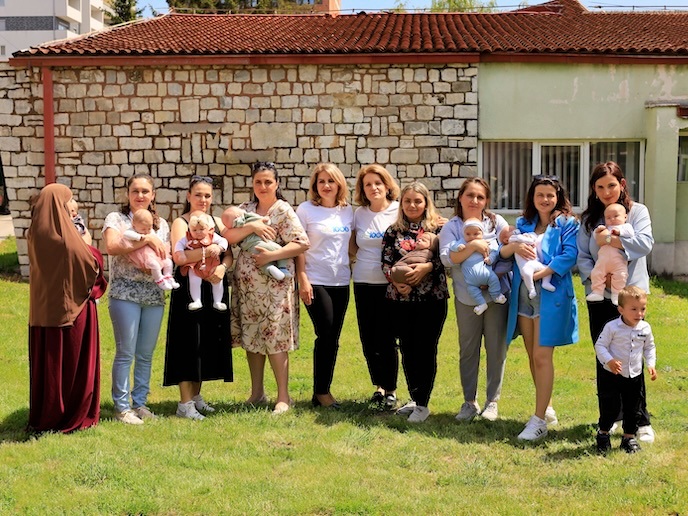Making group care for the first 1 000 days more accessible
The World Health Organization (WHO) envisions a world in which every pregnant woman and newborn receives quality care throughout the pregnancy, childbirth and postnatal period. However, poor quality of maternal and child health services has been identified as a root factor in avoidable maternal and newborn mortality and morbidity and in preventing many women and children from reaching their full health potential. “Good antenatal care is not just about avoiding death and morbidity: it is about enabling health and well-being while respecting dignity and rights,” says Marlies Rijnders, based at the Netherlands Organisation for Applied Scientific Research. Rijnders was the scientific coordinator of the EU-supported GC_1000 project, which aimed to make group care a standard healthcare model. “We wanted to move on from just knowing about the benefits of group care during the first 1 000 days, to learning about actually implementing it in a sustainable way, through training,” she remarks.
Group care: inclusive, sustainable and empowering
Within group care, a group of 10-12 women come together for 8-9 sessions of 2 hours, during pregnancy, with their healthcare provider who is often a midwife. During these sessions, regular health assessments are conducted, including risk identification, in a short, face-to-face encounter. The care then continues for the first 1 000 days. “Pregnant women, and new mums, are involved in their own healthcare as much as possible, for example through keeping track of their own data, registering their own weight and taking their own blood pressure. And instead of asking every client the same questions, individually, over and over again, within a limited time frame, the subject of those questions can be discussed more in depth,” explains Rijnders. The process creates a bond between participants, the healthcare provider included and can develop into trust and support that lasts much longer than the support a care professional can deliver. “If the care experienced is interesting and pleasant, if women and partners feel heard and are involved, then they come back,” Rijnders, who is a midwife of over 10 years’ standing, adds.
Making group care available to women and partners
To establish how best to deliver the service more widely, the team set up 7 demonstration sites in Belgium, Ghana, Kosovo, the Netherlands, South Africa, Suriname and the United Kingdom. The project focused on organisations either in countries with more vulnerable pregnant women and partners, or in high-income countries that served these populations; for example, asylum-seeking centres in the Netherlands or in areas of Belgium in which there are many refugee women. At the end of the project, in all countries, a total of 219 healthcare workers were trained, and the number of participating groups had exceeded the initial target: 210 groups meeting in 32 sites. Making the most of online resources, the team have publications to help trainers and providers along with a Lessons Learned report which provides information regarding the impact of socio-cultural, economic and infrastructural factors on implementation. Context is all-important, so the project has also published what they have learned about adapting the group care model to local situations. To enable those thinking of establishing the approach as part of their healthcare provision, the project has the Implementation Strategy Toolkit. “Our hope is that we have established the best way, in multiple contexts, to set up groups so women, their partners and healthcare professionals can all make the most of the undeniable benefits,” Rijnders says.
Keywords
GC_1000, group care, pregnant women, maternal, care, infant, empowering







